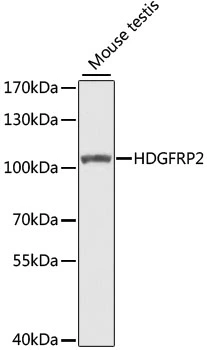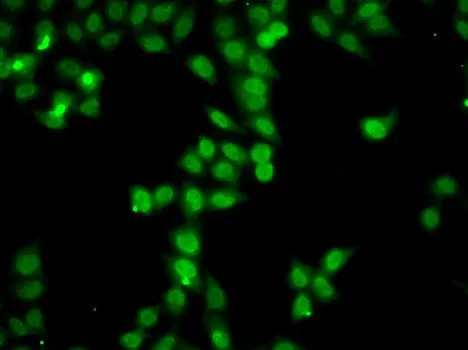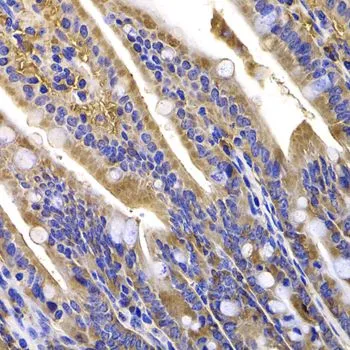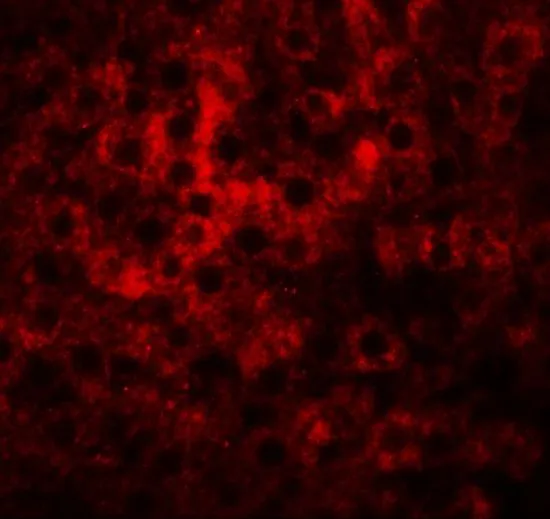
WB analysis of mouse testis tissue lysate using GTX33237 HDGFRP2 antibody. Dilution : 1:1000 Loading : 25μg per lane
HDGFRP2 antibody
GTX33237
ApplicationsImmunoFluorescence, Western Blot, ImmunoCytoChemistry, ImmunoHistoChemistry, ImmunoHistoChemistry Paraffin
Product group Antibodies
ReactivityHuman, Mouse
TargetHDGFL2
Overview
- SupplierGeneTex
- Product NameHDGFRP2 antibody
- Delivery Days Customer9
- Application Supplier NoteWB: 1:500 - 1:2000. ICC/IF: 1:50 - 1:200. IHC-P: 1:50 - 1:200. *Optimal dilutions/concentrations should be determined by the researcher.Not tested in other applications.
- ApplicationsImmunoFluorescence, Western Blot, ImmunoCytoChemistry, ImmunoHistoChemistry, ImmunoHistoChemistry Paraffin
- CertificationResearch Use Only
- ClonalityPolyclonal
- ConjugateUnconjugated
- Gene ID84717
- Target nameHDGFL2
- Target descriptionHDGF like 2
- Target synonymsHDGF-2, HDGF2, HDGFRP2, HRP-2, HRP2, hepatoma-derived growth factor-related protein 2, HDGF-related protein 2
- HostRabbit
- IsotypeIgG
- Protein IDQ7Z4V5
- Protein NameHepatoma-derived growth factor-related protein 2
- Scientific DescriptionThis gene encodes a member of the hepatoma-derived growth factor (HDGF) family. The protein includes an N-terminal PWWP domain that binds to methyl-lysine-containing histones, with specific binding of this protein to tri-methylated lysines 36 and 79 of histone H3, and di- and tri-methylated lysine 20 of histone H4. The protein functions in LEDGF/p75-independent HIV-1 replication by determining HIV-1 integration site selection. Alternative splicing of this gene results in multiple transcript variants. [provided by RefSeq, Apr 2014]
- ReactivityHuman, Mouse
- Storage Instruction-20°C or -80°C,2°C to 8°C
- UNSPSC12352203







